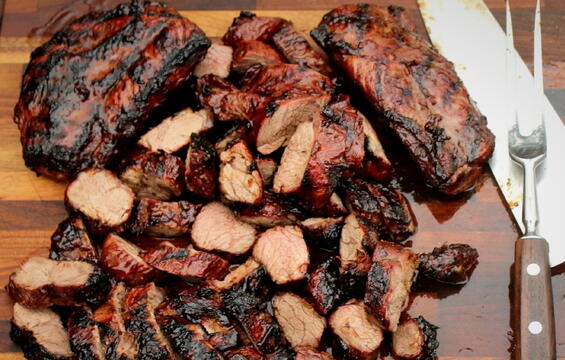Best practices
While preparing and eating wild game meat are generally considered safe activities, hunters and trappers can minimize risk from wildlife diseases by taking the following precautions when handling and processing game:

- Avoid handling or consuming wild animals that appear sick or those found dead.
- Wear gloves and a face shield when handling, field dressing, and processing game.
- When possible, process your game outdoors or in a well-ventilated location.
- Use caution and minimize contact with the brain or spinal tissues.
- Handle knives carefully to prevent accidental cuts.
- Wash hands thoroughly with soap and warm water after handling carcasses and before and after handling meat.
- Thoroughly sanitize all tools and work surfaces used during processing; with a bleach solution (1 tablespoon of bleach to 1 gallon water). Consider keeping a separate set of knives used only for butchering game.
- Keep meat refrigerated or frozen, then thaw in the refrigerator or microwave. Keep raw meat separate from other foods. Wash work surfaces, utensils, and hands after touching raw meat.
- Cook game meat thoroughly to an internal temperature of 165°F to kill pathogens.
- Refrigerate leftovers immediately.
Additional Resources
- Disease Precautions for Hunters by the American Veterinary Medical Association
Contact
Online
websites
MassWildlife Homepage